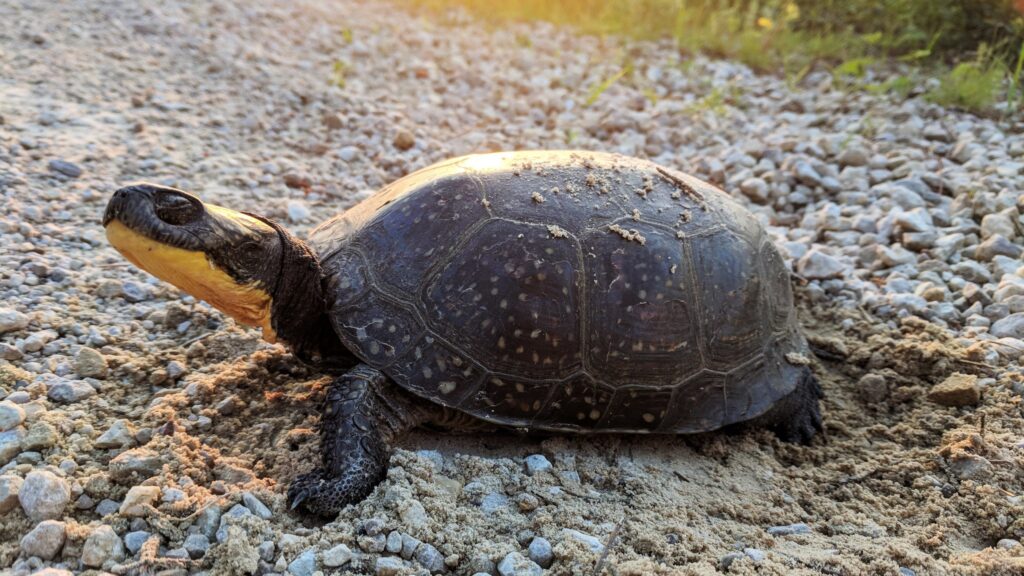Characterizing Climate Change Impacts on Species Ecology to Support Species Status Assessments

Project Information
Start Year: 2020, currently ongoing
Implements Science Plan Theme: Exposure
Investigators:
Ryan Boyles, USGS/Southeast Climate Adaptation Science Center
Olivia E. LeDee, Midwest Climate Adaptation Science Center
Marta P. Lyons, Midwest Climate Adaptation Science Center
Catherine A. Nikiel, ORISE/Southeast Climate Adaptation Science Center
Overview
In order to inform decisions under the Endangered Species Act (ESA), the U.S. Fish and Wildlife Service has been generating Species Status Assessments (SSA) since 2016. These scientific documents are intended to capture all biological information required for listing and management decisions. One important component of risk is the impact of climate change.
This project aims to provide technical support to SSA teams on the ecology-climate change interactions for a species using the best available science for both the species ecology and the climate information. Reports attempt to capture both the direct and indirect impacts of climate on species ecology.
Depending on the data availability and lead time for a given species the report may take one of two forms:
- Qualitative Assessment: A review of available literature on species ecology and a comprehensive analysis of available climate data in order to highlight areas of current or future concern.
- Quantitative Assessment: New species and habitat modeling work to understand priority species sensitivities, especially to current or emergent climate concerns.
These long form reports are intended to be produced alongside the SSA and provide a peer-reviewed document that can be cited by the SSA team and other researchers. Current reports are being published as individual chapters to an overall USGS open file report. Past and current species include snail kite (Rostrhamus sociabilis plumbeus), three species of Appalachian stonefly (Remenus kirchneri, Acroneuria kosztarabi, and Tallaperla lobata), streamside salamander (Ambystoma barbourin) and Blanding’s Turtle (Emydoidea blandingii)
Products:
- Embke, H.S., Nikiel, C.A., and Lyons, M.P., 2023, Potential effects of climate change on Acipenser fulvescens (lake sturgeon): U.S. Geological Survey Open-File Report 2021–1104–E, 41 p., https://doi.org/10.3133/ofr20211104E.
- Lyons, M.P., LeDee, O.E., and Boyles, R., 2023, Potential effects of climate change on Ambystoma barbouri (streamside salamander): U.S. Geological Survey Open-File Report 2021–1104–C, 14 p., https://doi.org/10.3133/ofr20211104C.
- Lyons, M.P., Nikiel, C.A., LeDee, O.E., and Boyles, R., 2022, Potential effects of climate change on Appalachian stoneflies (Remenus kirchneri, Acroneuria kosztarabi, and Tallaperla lobata): U.S. Geological Survey Open-File Report 2021–1104–B, 41 p., https://doi.org/ 10.3133/ ofr20211104B.
- Lyons M. P., Nikiel C. A., LeDee O. E., and Boyles R., 2023: Potential Effects of Climate Change on Emydoidea blandingii (Blanding’s turtle): U.S. Geological Survey Open-File Report 2021-1104-D, 46 p., https://doi.org/10.3133/ofr20211104D
- Lyons, M.P., LeDee, O.E., and Boyles, R., 2021, Potential effects of climate change on snail kites (Rostrhamus sociabilis plumbeus) in Florida: U.S. Geological Survey Open-File Report 2021–1104–A, 12 p., https://doi.org/10.3133/ofr20211104A.
